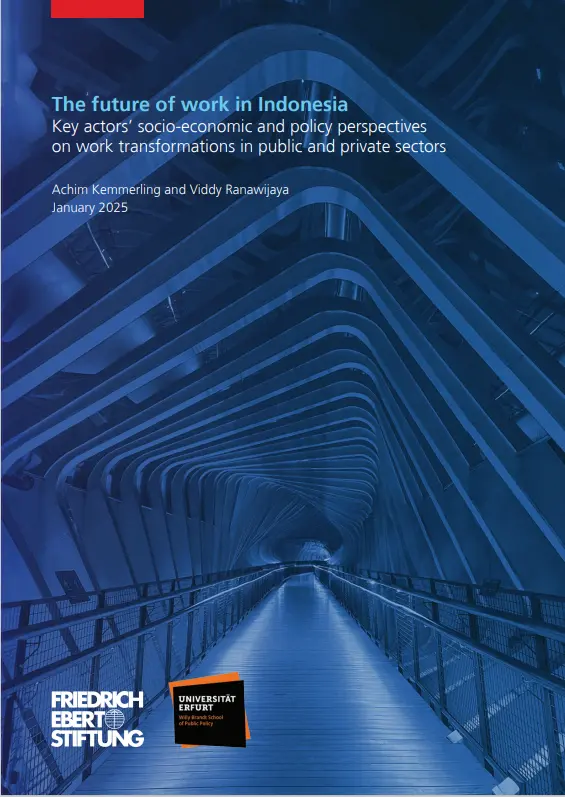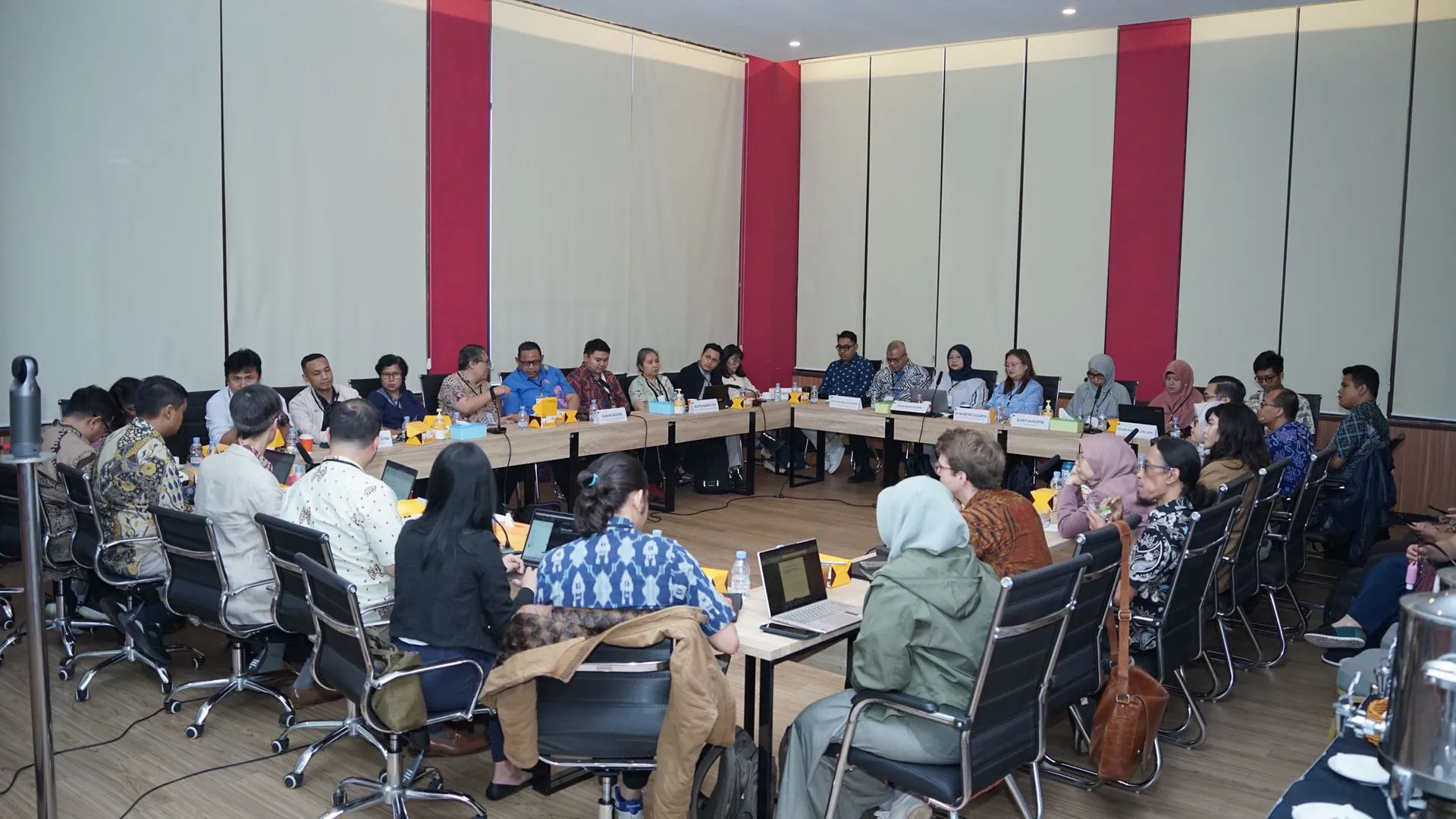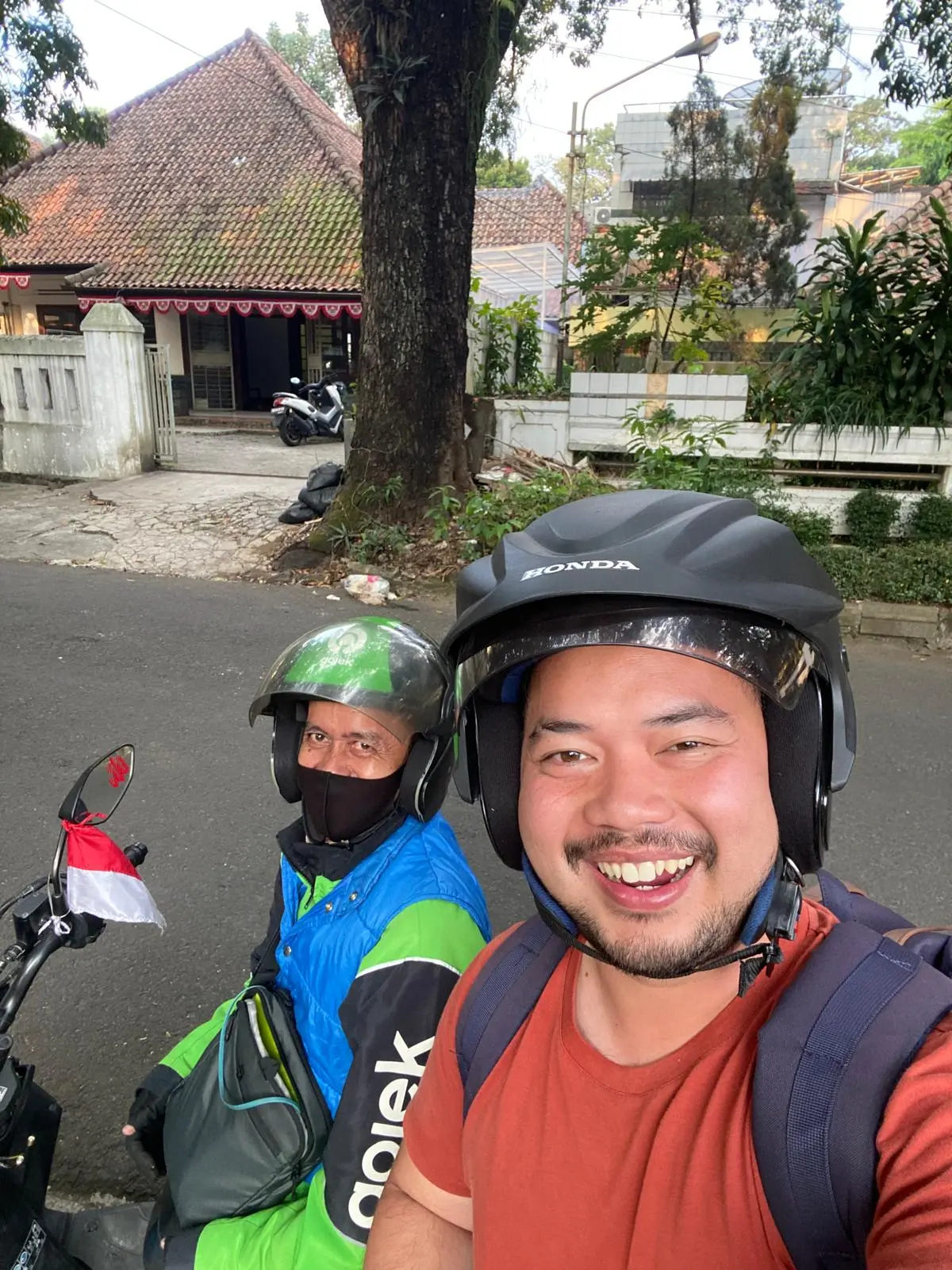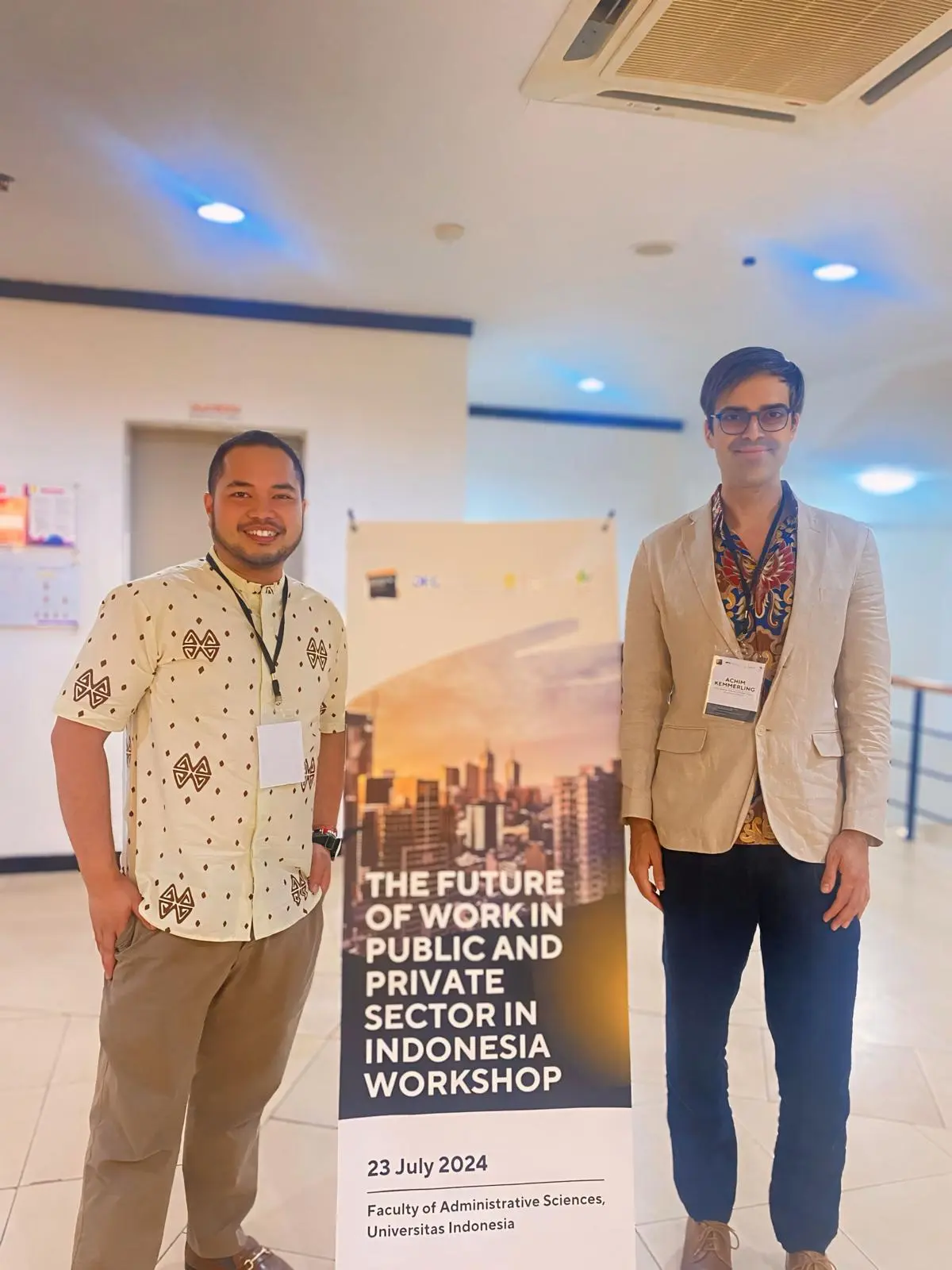Together with Friedrich Ebert Stiftung, The PolDigWork project has published a new working paper titled "The Future of Work in Indonesia: Key Actors' Socio-economic and Policy Perspectives on Work Transformation in Public and Private Sectors." The paper, which Prof. Achim Kemmerling and Viddy Ranawijaya write, presents and analyzes the findings of an expert focus group on the Future of Work in Indonesia that brought together representatives from the public and private sectors in Indonesia, including government ministries, trade unions, think tanks, industries, and academia. The workshop’s goal was to connect the fragmented discussions and encourage dialogue between sectors, gather diverse perspectives, and explore two important topics: socio-economic consequences of new technologies in the sphere of work and policy consequences of the future of work.
By asking stakeholders to share their perspectives on current and near-future scenarios, we aimed to understand how they perceive the scale and nature of disruptions and to assess the need for government policies and private sector initiatives, both profit and non-profit. When discussing the Future of Work in Indonesia, we were interested in factual insights on changes, needs, and demands and experts' narratives. Most experts shared an optimistic view, believing that digitalization will create more jobs than it eliminates. When skepticism arose, it primarily referred to the rise of platform work and the development of artificial intelligence. There was a common demand for more participation in governance, education, and reskilling to keep pace with technological innovation and efforts to regulate and govern emerging technologies, such as strategic industrial policy and data protection regulation. More coordination between different stakeholders seems desirable to all sides involved.
We thank the Friedrich Ebert Stiftung office in Berlin for being able to publish this working paper, as well as the Faculty of Administrative Sciences, Universitas Indonesia, and CELIOS Think Tank for their support in manifesting the workshop.












